#Phil Elwood
Explore tagged Tumblr posts
Text
Popular authors right now....
As 2024 unfolds, several authors have not only captured the literary spotlight but have also received widespread acclaim for their works. These authors have dominated bestseller lists and garnered critical praise, with readers eagerly anticipating their next releases in 2025.Phil Elwood has made a significant impact this year with his memoir, “All the Worst Humans.” This book, which dives deep…
#2024#2025#All the Worst Humans#Annie Jacobsen#Author#Behind the Curtain#contemporary literature#fiction#hot right now#Kaveh Akbar#Martyr!#non-fiction#Nuclear War#Phil Elwood#Pilgrimage#popular#readers#The Armageddon Files
1 note
·
View note
Text
0 notes
Text



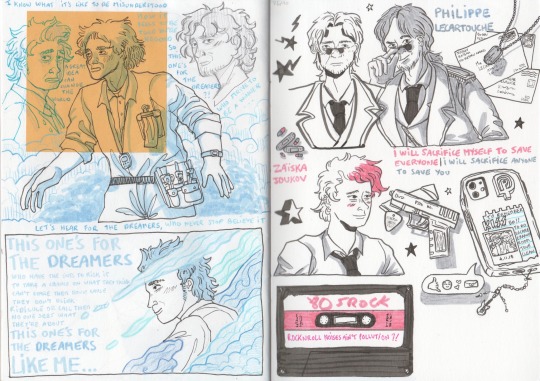
October sketchbook dump i forgot to post! 🎃👻
I think a lot about my ocs and their stories lately, I wish I could draw and talk about them more often :) also I have only 2 pages left in my sketchbook and I can’t wait to start a new one!
#still don’t have the time to do full scenes or big digital illustrations because of school… sorry lol#my art#art#artists on tumblr#the blues brothers#elwood blues#back to the future#bttf musical#doc emmett brown#roger bart#lost#john locke#my ocs#mes persos#section déficience#Bobby#Zaïska#Alpha#Phil#Seb#Oskar#Peter#Zéphyr#Philaïska#traditional art#sketchbook#sketchdump#doodles#sketches
16 notes
·
View notes
Text
youtube
Snog - Bastard Closet
#snog#bastard closet#david thrussell#veruschka#phil wales#steven stranger#barton shackleford#valdamar valerian#the elwood organic fruit and vegetable museum ensemble#The Elsternwick Senior Citizens Symphony Orchestra#trip hop#industrial#electroblues#the ballad#1998#Youtube
0 notes
Text
Songs Hozier has covered
Bowie - Changes, Young Americans (see also Trinity Orchestra section)
Prince - I Wanna Be Your Lover, Raspberry Beret, Jungle Love
James Carr - The Dark End Of The Street
The Beatles - Blackbird
John Lennon (Donny Hathaway version) - Jealous Guy (at the goldenplec block party with Zaska)
Ariana Grande - Problem
Warren G - Regulate (mashup with Problem)
James Blake - Retrograde
Tom Waits - Strange Weather
Florence and the Machine - Cosmic Love
Stevie Wonder - Living for the City, As, Sir Duke
Sting - 7 Days
The BeeGees - To Love Somebody
Lauryn Hill - Doo Wop (that thing)
Amerie - One Thing
Skip James (Alvin Youngblood Hart version) - Illinois Blues
Muddy Waters - Catfish Blues
Van Morrison - Caravan, Sweet Thing, Domino, Brown Eyed Girl, Saint Dominic’s Preview
Bill Withers - Ain’t No Sunshine, Use Me
Arctic Monkeys - Do I Wanna Know
Demi Lovato - Sorry Not Sorry
Led Zeppelin - Whole Lotta Love
Fun - We Are Young
Paul Simon - Bridge Over Troubled Water
Sam Smith - Lay Me Down
Destiny’s Child - Say My Name
Britney Spears - Toxic (snippet)
The Band - The Weight
Otis Rush version of Willie Dixon and the Big Three Trio - My Love Will Never Die
The Talking Heads - Burning Down the House (Instagram live messing around with friends)
The Staple Singers - Let’s Do it Again
The Weather Forecast 🤪
Ed Lewis - I Be So Glad When the Sun Goes Down (Instagram snippet)
Mavis Staples - Eyes on the Prize
Jackie Wilson - (Your Love Keeps Lifting Me) Higher and Higher
The Meters - Just Kissed My Baby
Traffic (song originally by Traffic, Andrew covered the Joe Cocker version) - Feeling Alright
Bruce Cockburn - Lovers In A Dangerous Time
Christmas Songs - God Rest Ye Merry Gentlemen, Winter Wonderland, Santa Claus is Coming to Town (with others at the Xmas Eve Ball 2015)
Traditional Irish songs - My Lagan Love, The Humours of Whiskey, I Am Stretched On Your Grave, The Rolling Wave (on the low whistle), The Parting Glass, The Lonely Jig (on the low whistle)
(Live) Collabs - that are not Andrew’s own songs
Alvin Youngblood Hart - Illinois Blues
Maren Morris - The Bones, My Church, Girl, The Tree
Annie Lennox - I Put a Spell on You (Screamin Jay Hawkins cover)
Tom Odell - Another Love
Noah Kahan - Northern Attitude
Allison Russell - Requiem, Stop Dragging My Heart Around (Stevie Nicks & Tom Petty cover)
Brandi Carlile - The Joke, Walk On (U2 cover), The Weight (The Band cover)
Jamala - Walk On (U2 cover)
Mavis Staples - The Weight (The Band cover), Keep Your Eyes on the Prize (with Our Native Daughters, Jason Isbell and Phil Cook)
Boygenius - Salt in the Wound
Alana Henderson - Ae Fond Kiss (poem by Robert Burns)
U2 - When Love Comes to Town
Tori Kelly - Blackbird (the Beatles cover)
Mumford and Sons - Timshel, Awake My Soul, With a Little Help From My Friends (Beatles cover, with other artists)
Lake Street Dive - Everyday People (Sly and the Family Stone cover)
Rachael Price - Rental Love
Victoria Canal - Swan Song
Elwood (his dog) - Don’t Go Breaking My Heart (Elton John and Kiki Dee cover, Insta snippet)
All the artists at Love Rocks NYC 2022 - Like A Rolling Stone (Bob Dylan cover), Feeling Alright (Traffic cover)
Brian Kennedy (and others) - I Wish I Knew How It Would Feel to Be Free (Nina Simone cover)
His Dad - The Weight (The Band cover at MSG)
Zaska, Wyvern Lingo, Loah - Sir Duke (Stevie Wonder cover)
Eabha McMahon - Bright Blue Rose (Jimmy McCarthy cover)
Brittany Howard - Feeling Alright (Joe Cocker version cover)
Joan Baez - We Shall Overcome, The Weight (The Band cover)
Christmas Eve Busk 2015
Bono, Glen Hansard - When Love Comes to Town, Every Breaking Wave
Glen Hansard, Imelda May - The Dark End of the Street (James Carr cover)
Christmas Eve Busk 2017
Glen Hansard, Coronas, Imelda May, Liam O Maonlaoi - So This is Christmas (John Lennon cover), The Aul Triangle
Music Groups
Nova Collective - (original songs) Tuile, Closer, Quick Bossa
Zaska - (original songs) In Your Own Sweet Time, Different Light, She Gunk Gunk Dunk A Funk, Oh Yeah
Anuna - with Andrew on lead vocals: The Raid, La Chanson de Mardi Gras. With Andrew in the choir: Jingle Bells, An Uaithne
The Wiggles - Cherry Tree Carol with Anuna
Trinity Orchestra - songs covered with Andrew on lead vocals
~ Queen - Somebody To Love, Don’t Stop Me Now
~ Arcade Fire - My Body is a Cage
~ Pink Floyd - Time, Breathe, Comfortably Numb, Shine on You Crazy Diamond, Money
~ Michael Jackson - Earth Song, Black or White, Smooth Criminal
~ David Bowie - Heroes
*This list may not be complete. It only contains songs that can be found online.
Please let me know if any songs are missing so I can add them 🫶
I’ve not included the songs he sang snippets of on that Song Association interview
198 notes
·
View notes
Text
DC Latino Superheroes Part 1
1. Jaime Reyes aka Blue Beetle - Chicano (Mexican American)
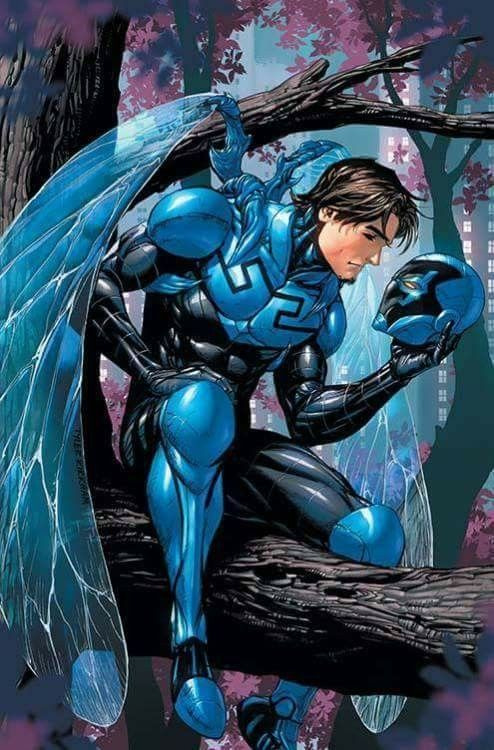
2. Milagro Reyes aka Green Lantern (a popular fandom interpretation) - Chicana (Mexican American)

3. Kyle Rayner aka Green Lantern - biracial; half Irish and half Mexican American

4. Keli Quintela aka Teen Lantern - biracial; Afro-Indigenous Bolivian born
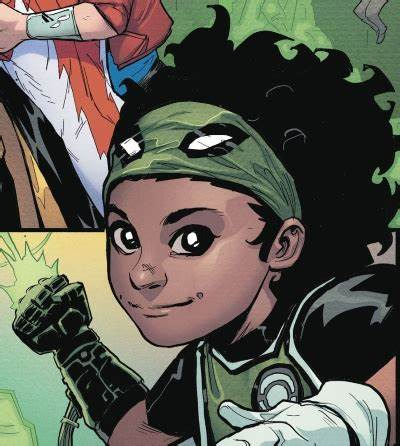
5. Selina Kyle aka Catwoman - biracial; Afro-Cuban American; to explain she has been portrayed by black women multiple times and I believe some comic issues has her state her Cuban heritage. So, I would make her Afro-Cuban with green eyes.

6. Miguel Jose Barragan aka Bunker - Mexican
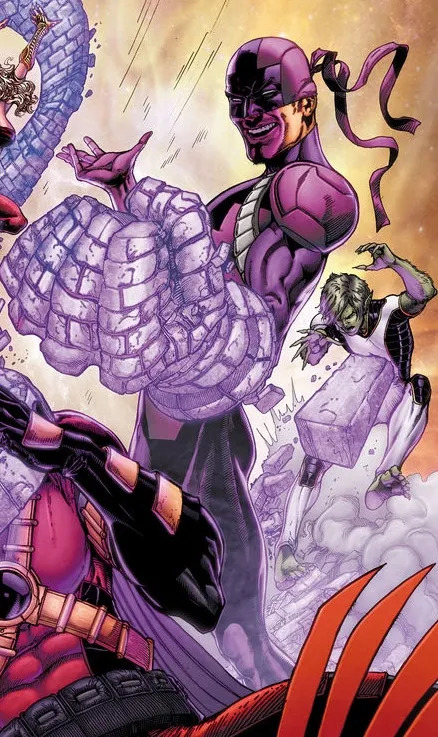
7. Mas y Menos - Guatemalan

8. Pedro Pena aka Shazam - Chicano (Mexican American)

9. Jessica Cruz aka Green Lantern - Chicana (Mexican American) and Honduran
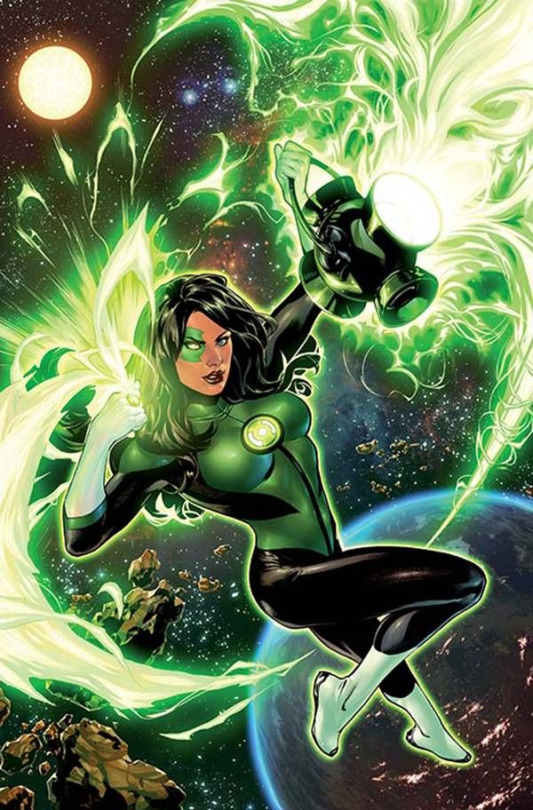
10. Renee Montoya aka The Question II - Afro-Dominican American
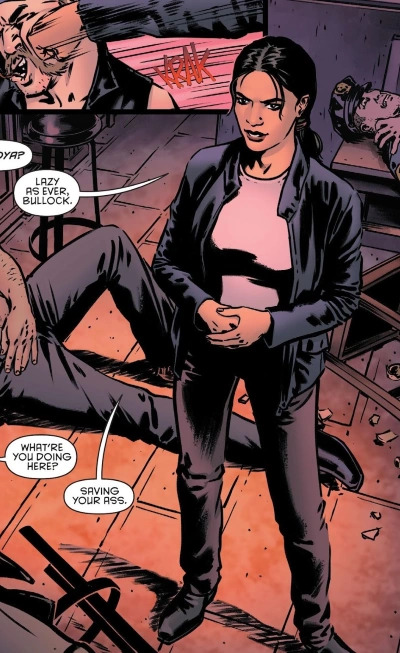
11. Cisco Ramon aka Vibe - half Colombian and half Puerto Rican American
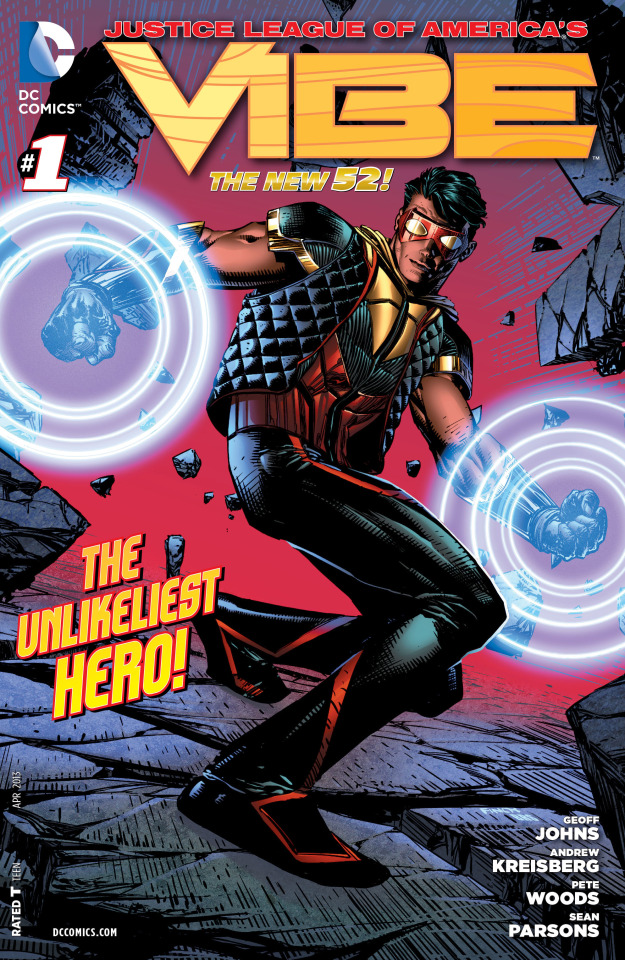
12. Miguel Devante aka Vulcan - biracial; half white and Latino nationality unknown

13. Ya'Wara - biracial; Indigenous Brazilian
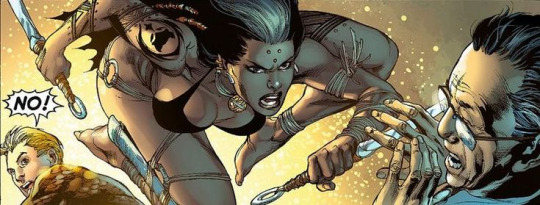
14. Maria Mendoza aka Wonder Woman - Peruvian

15. Yara Flor aka Wonder Woman - biracial; Afro-Indigenous Brazilian

16. Lorena Marquez aka Aquagirl - Mexican American

17. Isabella Ortiz aka Robina - Latina nationality unknown but American born; possibly Afro Latina
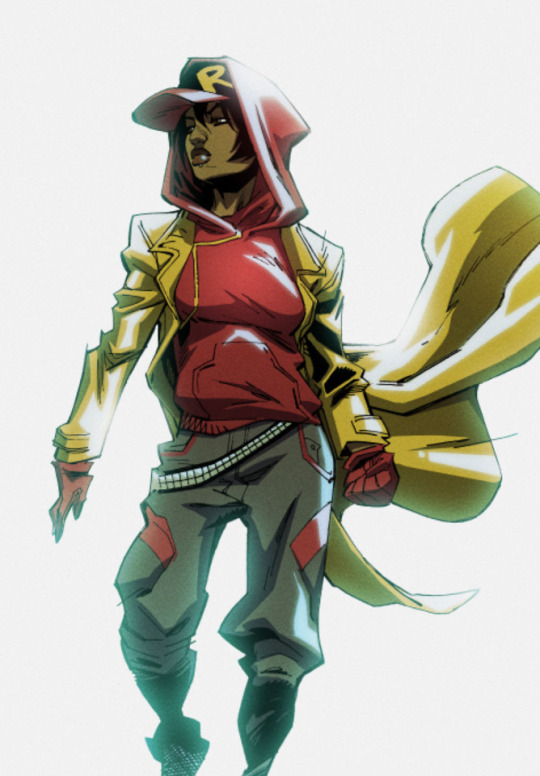
18. Don Fernando Suarez aka El Castigo (The Whip) I - Mexican born
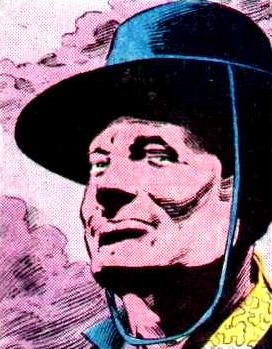
19. Rodrigo Elwood Gaynor aka El Castigo (The Whip) II - Chicano (Mexican American)

20. Shelly Gaynor aka El Castigo (The Whip) III - Chicana (Mexican American); artwork by Phil Cho
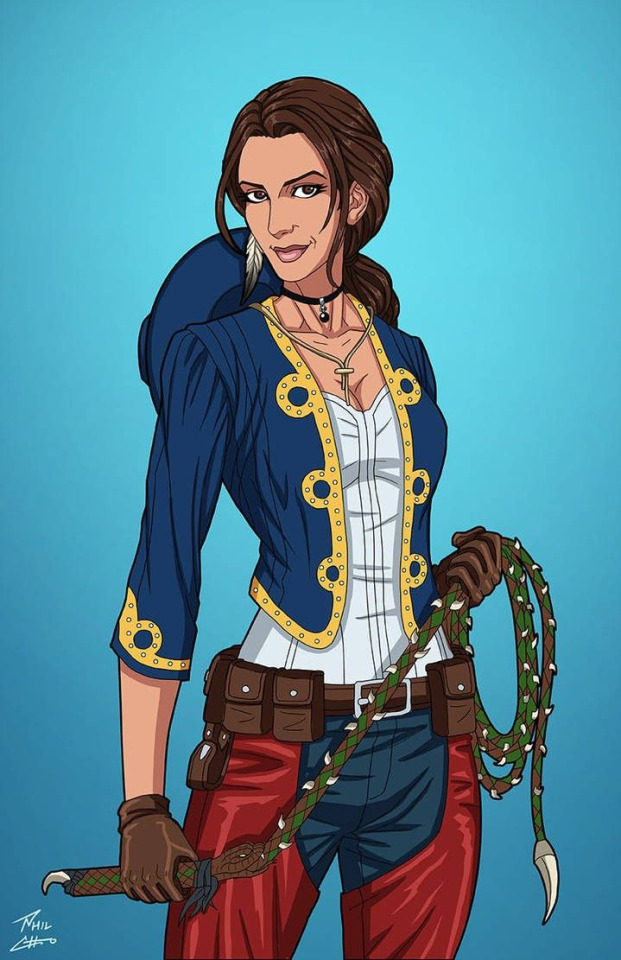
21. Eduardo Dorado aka El Dorado - Mexican born; I highly suggest following his incarnation in the animated Young Justice series
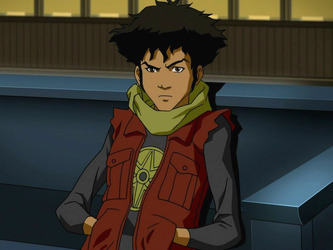
22. Bernal Rojas aka Bushmaster - Venezuelan born

23. Uno aka Aztek - biracial; Indigenous Mexican
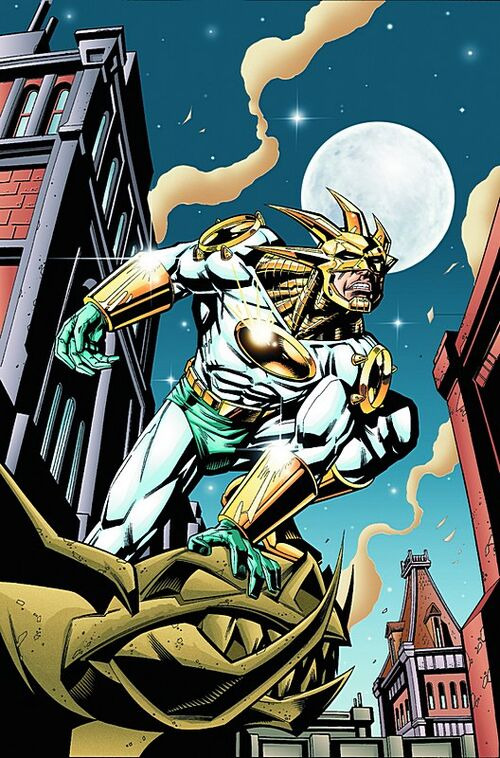
24. El Gaucho - real name unknown; Argentinian born

25. Rosabelle Mendez aka Pantha - Hispanic nationality unknown

26. Pablo Valdez aka El Muerto - Mexican born
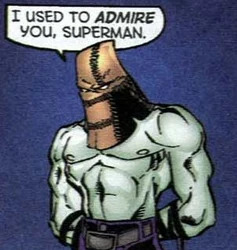
27. Anita Fite aka Empress - biracial; Afro-Haitian

28. Yolanda Montez aka Wildcat - Mexican born

29. Andrea Rojas aka Acrata - Mexican born
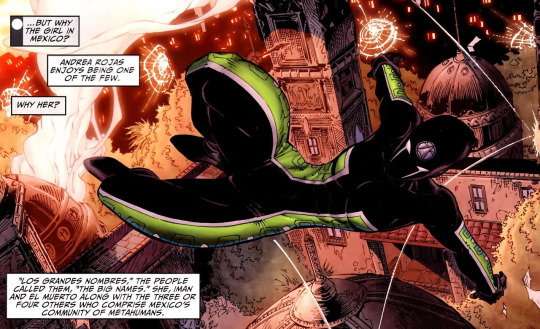
30. Beatriz da Costa aka Fire - Brazilian born

24 notes
·
View notes
Text
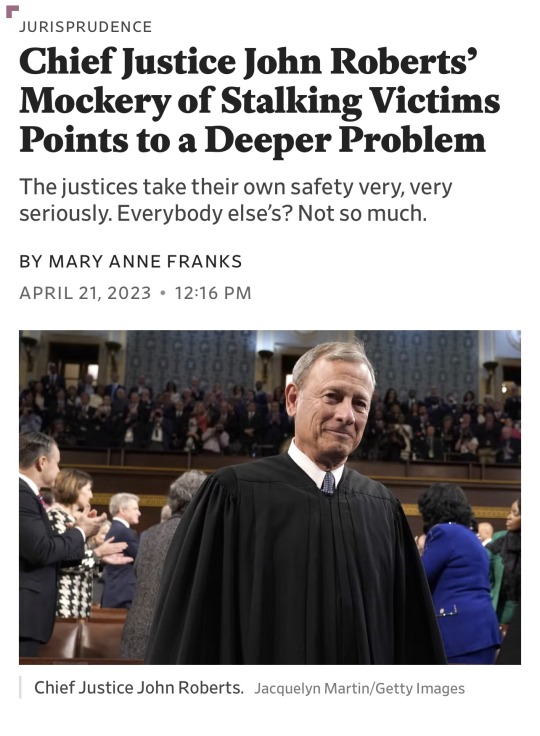
Stalking is so closely correlated with lethal violence that experts refer to it as “slow motion homicide”: More than half of all female homicide victims in the U.S. were stalked before they were killed. Despite the terrifying and dangerous consequences, many victims of stalking do not report the abuse to law enforcement for fear they will not be taken seriously.
The reasonableness of that fear was vividly illustrated by the Supreme Court oral arguments in Counterman v. Colorado on Wednesday morning, as members of the highest court of the land joked about messages sent by a stalker to his victim, bemoaned the increasing “hypersensitivity” of society, and brushed aside consideration of the actual harm of stalking to focus on the potential harm of stalking laws.
For nearly two years, Billy Raymond Counterman sent thousands of unsolicited and unwanted Facebook direct messages to C.W., a local musician, ultimately driving her to abandon her career and leave the state. Counterman, who had previously served time in federal prison for making violent threats against his ex-wife and her family, argues that his conduct towards C.W. was free speech protected by the First Amendment. Counterman maintains, supported by amicus briefs from influential civil libertarian organizations such as the ACLU, the EFF, and FIRE, that stalking cannot be criminally prohibited except when the government can prove that the stalker subjectively intended to terrify his victim. The state of Colorado, supported by amicus briefs from First Amendment scholars, stalking experts, and domestic violence victim advocates, argues that it is enough to prove that the stalking would be terrifying to a reasonable person in light of the totality of the circumstances. If the court rules in Counterman’s favor, delusional stalking—no matter how objectively terrifying or threatening—will be transformed into an inviolable constitutional right.
During oral argument, Chief Justice John Roberts quoted a handful of the thousands of unsolicited messages Counterman sent to C.W. “Staying in cyber life is going to kill you,’” Roberts read aloud. After a pause, he joked, “I can’t promise I haven’t said that,” prompting laughter from other justices and the audience. Picking out another message, which he described as an “image of liquor bottles” captioned as “a guy’s version of edible arrangements,” Roberts challenged Colorado Attorney General Phil Weiser to “say this in a threatening way,” leading to more laughter from the court. And the laughs didn’t stop there: Counterman’s attorney, John Elwood, shared with the court that his mother would routinely tell him to “drop dead” as a child, but “you know, I was never in fear because of that.”
(continue reading)
#politics#scotus#john roberts#stalking#femicide#misogyny#rape culture#war on women#counterman v colorado#stalkers
46 notes
·
View notes
Text
5 notes
·
View notes
Photo

Ava Gardner and Burt Lancaster in The Killers (Robert Siodmak, 1946)
Cast: Burt Lancaster, Ava Gardner, Edmond O’Brien, Albert Dekker, Sam Levene, Vince Barnett, Virginia Christine, Jack Lambert, Charles D. Brown, Donald MacBride, Charles McGraw, William Conrad, Phil Brown. Screenplay: Anthony Veiller, based on a story by Ernest Hemingway. Cinematography: Elwood Bredell. Art direction: Martin Obzina, Jack Otterson. Film editing: Arthur Hilton. Music: Miklós Rózsa.
Burt Lancaster and Ava Gardner, at the start of their Hollywood careers, shine out against the noir background of The Killers like the stars they became. Which is perhaps the only major flaw in Robert Siodmak's version of -- or rather extrapolation from -- Ernest Hemingway's classic short story. They're both terrific: Lancaster underplays for once in his film career, which began with this movie, and no one was ever so beautiful or gave off such strong "bad girl" vibes as Gardner. But their presence tends to upend the film, which really stars Edmond O'Brien and a fine cast of character actors. Hemingway's story accounts for only the first 20 minutes or so of the film, the remaining hour of which was concocted by Anthony Veiller, with additional work by John Huston and Richard Brooks. In the Hemingway part of the movie, two hitmen (William Conrad and Charles McGraw) enter a small-town diner looking for their target, a washed-up boxer they call "the Swede." They bully the diner owner and tie up the cook and Nick Adams (Phil Brown), but when they decide that the Swede isn't going to show up for his usual evening meal, they leave. Nick gets loose and runs to warn the Swede, Ole Anderson (Lancaster), in his rooming house, but the man exhibits only a passive acceptance of his fate. The short story ends with the Swede turning his face to the wall and Nick returning to the diner, but in the film we see the hitmen arrive at the rooming house and kill the Swede. What follows is a backstory that Hemingway never bothered with -- although he later told Huston that he liked the movie -- about an insurance investigator's probe into the killing. The Swede had left a small insurance policy, and when the investigator, Reardon (O'Brien), contacts the beneficiary he begins to find threads that lead him back to an earlier payroll heist. With the help of a friend on the police force, Lubinsky (Sam Levene), who knew the Swede from his boxing days, Reardon sorts out the tangled story of what happened to the loot and how the Swede became the target of a hit. Siodmak's steady hand as a director earned him an Oscar nomination, as did Arthur Hilton's editing and Miklós Rózsa's score, which features a four-note motif that was lifted by composer Walter Schumann for the familiar "dum-da-dum-dum" title music of the 1950s TV series Dragnet, leading to a lawsuit that was settled out of court. Veiller was also nominated for the screenplay, but the contributions of Huston and Brooks went uncredited, largely because they were under contract to other studios.
2 notes
·
View notes
Text
SPINNERS
Books of Interest Website: chetyarbrough.blog All the Worst Humans (How I Made News for Dictators, Tycoons, and Politicians) By: Phil Elwood Narrated By: Holter Graham Phil Elwood (Author, public relations operative, graduate of Georgetown University with graduate studies at the London School of Economics.) “All the Worst Humans” is a macabre but revealing look into the darkest corners of…
0 notes
Text
Exploring the top picks of 2024, as selected by Amazon’s book editors—featuring compelling narratives, unforgettable characters, and stories that will stay with you long after you’ve turned the last page.

Exploring the top picks of 2024, as selected by Amazon’s book editors—featuring compelling narratives, unforgettable characters, and stories that will stay with you long after you’ve turned the last page.
Introduction
Continuing with this series of posts where I review, recommend, and share relevant books that will help you expand your horizons across multiple subjects, I’m excited to share with you this list of 10 book recommendations. Recently, the Amazon Books Editors published a curated list of the top 10 books that truly stand out, each offering something unique. From thought-provoking retellings to heart-pounding thrillers, these books cover a wide range of genres and styles, ensuring there’s something for every reader. Join me as we explore these remarkable works and uncover why they are considered the best of 2024 so far.
Skill Readers Level
Intermediate to Advanced.
1.
James by Percival Everett
Genre: Literary Fiction James by Percival Everett: A powerful retelling of a classic American story through the eyes of Jim.
Overview: Percival Everett’s James stands out as the top pick of 2024, offering a fresh and thought-provoking retelling of The Adventures of Huckleberry Finn from the perspective of Jim, the enslaved man at the heart of Mark Twain’s classic. Everett masterfully brings Jim’s voice to the forefront, weaving a tale that is both poignant and darkly humorous. As Jim navigates his escape from enslavement and an unlikely partnership with Huck, readers are treated to a richly layered narrative that delves into themes of freedom, identity, and resilience.
Why You Should Read It: James is not just a retelling but a reinvention of a classic story, providing new insights and perspectives on well-known characters. Everett’s sharp wit and deep understanding of human nature make this novel a must-read for anyone interested in American literature, social justice, or simply a compelling story.
Learn more about James
2.
The Women by Kristin Hannah
Genre: Historical Fiction The Women by Kristin Hannah: A moving tribute to the unsung heroes of the Vietnam War.
Overview: Kristin Hannah, known for her emotionally charged novels, brings to life the untold stories of combat nurses during the Vietnam War in The Women. The novel follows Frances “Frankie” McGrath, a young woman from a prestigious military family, as she volunteers as a nurse in Vietnam. Hannah captures the harsh realities these women faced, both on the battlefield and upon returning home, where their sacrifices were often overlooked or dismissed.
Why You Should Read It: The Women is a powerful tribute to the unsung heroes of war, shedding light on the courage and resilience of women who served in one of the most tumultuous periods in history. Hannah’s ability to evoke deep emotions and create complex characters makes this novel a deeply moving and unforgettable read.
Learn more about The Women
3.
All the Worst Humans by Phil Elwood
Genre: Nonfiction/Memoir All the Worst Humans by Phil Elwood: A shocking memoir revealing the dark side of power and politics.
Overview: Phil Elwood’s All the Worst Humans offers a behind-the-scenes look at the dark underbelly of power, politics, and wealth. This memoir reads like a thriller, with Elwood recounting his years as a PR hitman for some of the world’s most controversial figures. From manipulating media narratives to orchestrating elaborate schemes, Elwood’s stories are both shocking and compelling.
Why You Should Read It: This book is a must-read for anyone fascinated by the intersection of power and morality. Elwood’s candid account provides a rare glimpse into the machinations that shape global events, making it a thought-provoking read that will leave you questioning the integrity of those in power.
Learn more about All the Worst Humans
4.
The Ministry of Time by Kaliane Bradley
Genre: Science Fiction/Time Travel The Ministry of Time by Kaliane Bradley: A genre-bending novel exploring time travel, espionage, and love.
Overview: Kaliane Bradley’s debut novel, The Ministry of Time, is a genre-defying masterpiece that blends time travel, espionage, and romance into a thrilling narrative. Set in a near-future London, the story follows Graham Gore, a 19th-century Arctic explorer brought into the present by a secret government agency. As Gore adjusts to modern life with the help of his “bridge,” readers are taken on a journey that explores the complexities of time, love, and human connection.
Why You Should Read It: Bradley’s novel is a unique and imaginative exploration of how the past and present can collide in unexpected ways. With its blend of historical fiction, science fiction, and romance, The Ministry of Time is a captivating read that will appeal to a wide range of readers.
Learn more about The Ministry of Time
5.
Martyr! by Kaveh Akbar
Genre: Literary Fiction Martyr! by Kaveh Akbar: A debut novel that blends humor and depth in exploring identity and meaning.
Overview: Poet Kaveh Akbar makes his fiction debut with Martyr!, a humorous and somber novel. The story follows Cyrus Shams, a young Iranian-American man grappling with his identity and the meaning of life. As Cyrus embarks on a journey of self-discovery in New York City, Akbar’s lyrical prose and sharp wit shine through, making this a standout debut.
Why You Should Read It: Martyr!, is a novel that combines the poetic sensibilities of its author with a compelling narrative that explores the complexities of cultural identity and personal growth. Akbar’s unique voice and perspective make this a must-read for fans of literary fiction.
Learn more about Martyr!
6.
Nuclear War by Annie Jacobsen
Genre: Nonfiction Nuclear War by Annie Jacobsen: A chilling nonfiction account of a hypothetical nuclear scenario.
Overview: Annie Jacobsen’s Nuclear War is a terrifyingly real account of a hypothetical nuclear attack on the United States by North Korea. Drawing on classified documents and interviews, Jacobsen provides a minute-by-minute breakdown of what could happen in such a scenario, blending history, science, and politics into a gripping narrative.
Why You Should Read It: This book is not just a cautionary tale but a deeply researched exploration of the realities of nuclear warfare. Jacobsen’s ability to present complex information in a compelling and accessible way makes Nuclear War an essential read for anyone interested in global security and the future of warfare.
Learn more about Nuclear War
7.
All the Colors of the Dark by Chris Whitaker
Genre: Mystery/Thriller All the Colors of the Dark by Chris Whitaker: A haunting tale of friendship, loss, and mystery.
Overview: All the Colors of the Dark by Chris Whitaker is a poignant tale of friendship, loss, and the enduring power of love. The novel follows Patch and Saint, two childhood friends who are bound together by a shared trauma. As they grow up, their lives are shaped by the mysterious disappearance of a girl, leading them on a quest for answers that spans years and continents.
Why You Should Read It: Whitaker’s novel is a beautifully written exploration of the human condition, filled with moments of joy, sorrow, and profound insight. The author’s ability to create vivid characters and an immersive world makes this a novel that will stay with you long after you’ve turned the last page.
Learn more about All the Colors of the Dark
8.
Lies and Weddings by Kevin Kwan
Genre: Romance/Comedy Lies and Weddings by Kevin Kwan: A glamorous and hilarious rom-com set in exotic locales.
Overview: Kevin Kwan, the author of Crazy Rich Asians, returns with Lies and Weddings, a delightful rom-com that takes readers on a glamorous journey across the globe. Set against the backdrop of an extravagant wedding in Hawaii, the novel explores the lives of the Earl of Greshambury, his family, and their wealthy neighbor, the Tongs. As secrets are revealed and hearts are broken, Kwan weaves a tale that is both hilarious and heartfelt.
Why You Should Read It: Kwan’s Lies and Weddings is a perfect escape for anyone looking for a light-hearted yet meaningful read. With its witty dialogue, lavish settings, and engaging characters, this novel offers a fun and entertaining look at the complexities of family, love, and social status.
Learn more about Lies and Weddings
9.
Lost Man’s Lane by Scott Carson
Genre: Supernatural Thriller Lost Man’s Lane by Scott Carson: A supernatural thriller blending horror, mystery, and coming-of-age.
Overview: Scott Carson’s Lost Man’s Lane is a supernatural thriller that blends elements of horror, mystery, and coming-of-age. The story follows Marshall Miller, a teenage boy who becomes entangled in a series of strange events in his small town. As the supernatural forces at play become more apparent, Marshall must confront his deepest fears and uncover the truth behind the disappearances of several local girls.
Why You Should Read It: Carson’s writing is both evocative and suspenseful, making Lost Man’s Lane a gripping read from start to finish. Fans of supernatural thrillers and coming-of-age stories will find much to enjoy in this well-crafted novel.
Learn more about Lost Man’s Lane
10.
This Could Be Us by Kennedy Ryan
Genre: Contemporary Fiction This Could Be Us by Kennedy Ryan: A deeply emotional novel about love, loss, and self-discovery.
Overview: This Could Be Us by Kennedy Ryan is a deeply emotional exploration of love, loss, and self-discovery. The novel follows Soledad as she navigates the challenges of divorce, raising children, and finding herself again. Ryan’s writing is raw and honest, capturing the complexities of relationships and the journey to self-acceptance.
Why You Should Read It: This novel is a powerful reminder of the importance of self-love and the strength it takes to rebuild one’s life after trauma. Ryan’s relatable characters and heartfelt storytelling make This Could Be Us an engaging and memorable read.
Learn more about This Could Be Us
Conclusion
As we look forward to the remaining months of 2024, the books highlighted in this post stand as a testament to the power of storytelling. Each one offers a unique perspective on life’s challenges, joys, and complexities. I can’t wait to see what the rest of the year will bring and expect these titles to remain among the best of 2024. Keep an eye out for upcoming releases that will continue to shape the literary landscape.
FAQ
1. Will there be a sequel to any of these books? While it’s too early to say for sure, several of these books, particularly The Ministry of Time and This Could Be Us, have the potential for sequels or expanded stories in the future.
2. Can I find these books in formats other than Kindle? Yes, most of these books are available in multiple formats, including hardcover, paperback, and audiobook.
3. Are these books suitable for all readers? These books are primarily aimed at intermediate to advanced readers due to their complex themes and mature content.
4. Where can I learn more about each book? I’ve included detailed descriptions, reviews, and purchase links throughout this post, all redirecting to Amazon’s official site. Simply click on each book title to go directly to its Amazon page for more information.
5. Are there any similar books you recommend? Looking for similar book recommendations? If you enjoyed these titles, I suggest checking out my Amazon influencer page, where I’ve curated a selection of classics, bestsellers, and more. Click here for more details and to explore my full list.
Learn More
For further exploration, visit my Amazon’s list of the full Best Books of 2024 So Far. Here, you’ll find additional titles and categories that cater to all reading preferences.
1 note
·
View note
Text
Book Review: ‘All the Worst Humans,’ by Phil Elwood
bookjubilee.com http://dlvr.it/T93zSR
0 notes
Text
BOOKS Dispatches from the shadows


PR pro dishes on his shady dealings with some notable names
Meet Phil Elwood, an insider’s insider of Washington.
A public relations professional, he has stealthily managed challenging assignments over the years, from Qatar’s contested World Cup bid to Vogue ’s disastrous 2011 profile of Bashar al-Assad’s wife, Asma.

His passion is controlling the narrative — leveraging valuable intelligence and his media savvy to deliver for clients.
And oh, what a client list it is.
Under the surface, though, Elwood is a wreck.
Diagnosed with depression when he dropped out of college, he self-medicated with booze (and more) as he built his Washington career, battling a succession of mental health crises that culminated in a suicide attempt.
After recovering from that episode, he’s telling his story in
All the Worst Humans: How I Made News for Dictators, Tycoons, and Politicians ,
an account that’s part therapy, part cautionary tale.
What makes Elwood’s story stand out from the typical Washington read is that his personal demons are so intertwined with his professional choices.
Most dramatic is his realization at the end of the story that his addiction to adrenaline — the power rush from working behind the scenes — is also a feature of his bipolar II disorder, which led him to the edge.
The book also pops because it’s funny — despite everything.
Elwood’s prose is zippy, even Sorkin-esque, and he relishes dark humor.
“Karl Marx said religion was the opium of the people,” Elwood writes in a section about becoming addicted to pain medication following a serious hip injury. “You know what’s a lot more like the opium of the people? Opiates.”
Elwood’s D.C. journey began in the summer of 2000.

Even though he blew up his college career, he finagled a Senate internship with Daniel Patrick Moynihan (D-N.Y.) with the help of a well-connected friend, then landed in the office of Sen. Carl Levin (D-Mich.).

Through Levin’s pull, he completed his formal education, then launched his professional life in Washington PR.
His lucky breaks made it clear to him how unfair the system can be.

He soon landed a job at Brown Lloyd James, the PR shop headed by former Beatles manager Peter Brown with a long client list of what Elwood deems the “worst humans,” including Libyan dictator Moammar Gaddafi and Syrian President Bashar al-Assad.

Needless to say, the job gave Elwood the excitement he craved.
Except that it was a bit too exciting.
One of Elwood’s wildest tales took place in 2009, when, he writes, Brown dispatched him to Las Vegas with Mutassim Gaddafi, son of the Libyan dictator, to make sure he and his entourage stayed out of the headlines while they had fun.

There were drugs, guns, a Cher concert (Mutassim was a fan) and lots of gambling.
A terrified Elwood realized that if anyone in this brutal, unhinged gang wanted to kill him, they’d probably get away with it.
He left Las Vegas relieved to be alive, only to be told he was needed in New York.
This time, it was Mutassim’s father, Moammar Gaddafi, whom BLJ had to (try to) manage during his notorious appearance at the U.N. General Assembly, as part of his short-lived rehabilitation phase with the West.
Tasked with housing and other logistics, the firm scrambled to organize a massive tent on the Bedford, N.J., estate of Donald Trump (the only willing host, according to Elwood) and find a sacrificial goat for the Libyan delegation, just to name a few to-do list items.
Elwood recounts that his moral angst and self-doubt became more acute in 2010 when he was part of Qatar’s successful effort to beat the United States in its bid to host the 2022 World Cup — a FIFA decision so controversial that the Justice Department eventually investigated.
He was further shaken on a business trip to Bosnia, where he visited the site of a Bosnian Serb massacre of Muslim civilians and was “confronted with the gritty reality of totalitarian power.”

He didn’t have to ponder too long; upon his return, Elwood recalls, Brown told him, “The Arab Spring has been bad for our business model,” and fired him.

Elwood then landed at Levick Strategic Communications.
There the clients were less brutal, but some were still, in Elwood’s assessment, dodgy; he cites the example of Kim Dotcom, a hacker and internet entrepreneur who has had decades of run-ins with the law.
Eventually, Elwood started his own shop.

This time, he worked with an Israeli firm, Psy-Group, that became ensnared in the Mueller investigation for allegedly pitching an election influence campaign to Trump’s team in 2016.
Elwood was questioned by the government but let go — and deftly managed to keep his name out of the press.
Another close brush.
One of the juiciest parts of Elwood’s story is his work with the media.
Early on, after he negotiated with CNN to air a strategically useful clip, he describes an “aha” moment:
“My job isn’t to manipulate public opinion. My job is to get gatekeepers like CNN to do it for me.”
This sounds cynical, but what he describes is an exchange in which both sides mutually benefit.
Elwood has an innate understanding of how journalists work and genuinely respects them.
He makes that clear as he spills details of his tradecraft: working with reputable reporters at top publications (he divulges a long A-list of names), selectively picking outlets for maximum impact and exploiting the “scoopiness” that journalists prize in exchange for results for his clients.
He describes this quid pro quo as a form of “insider trading” but points out that valuable information in Washington, like all commodities, is appraised and traded on a market.
And information is valuable only if it’s true, or at least true-ish.
To that end, he counsels his fellow PR flacks against trading in bad information — reminding them that good journalists will quickly detect lies when they are handed to them.
Elwood is a troubled but sympathetic narrator, and most readers will probably find themselves relieved to know that, at the end, he’s in a better place.
He closes his story lurking in the background, as a black rectangle on a Zoom call with clients.
But this time, he says, he’s working for “the good guys.”
All the Worst Humans How I Made News for Dictators, Tycoons, and Politicians Phil Elwood Henry Holt, $28.99
All the Worst Humans Author: Phil Elwood
CHAPTER 1
Of Marble and Giants
EIGHTEEN YEARS EARLIER, JULY 2000
The halls of the Capitol Building are empty this morning.
The clinks of the liquor bottles in the hand truck I’m pushing are the only sound.
I love being alone here, marveling at marble columns propping up carved ceilings.
Under the massive dome of the Rotunda, paintings tell the mythology of early America.

In Statuary Hall, I nod to a bronze statue of Huey Long, an assassinated senator who some consider a hero, others a criminal, and then enter a wood-paneled corridor.
Spiral staircases of iron and marble materialize out of dark corners.
I maneuver the bottles past unmarked doors that lead to the hideaway offices of Senators Trent Lott, Mitch McConnell, and Ted Kennedy.
Senators steal away to these coveted havens to host meetings they’d rather not have eyeballed by reporters or to nap after marathon debates.
The booze is heavy, and I’m out of breath when I reach Sen. Daniel Patrick Moynihan’s hideaway.
Vodka soda sweat leaks through my cheap, white collared shirt.
We interns were out late at Politiki bar last night.
I let myself in and head for the brass bar cart.
Fifths of whiskey, gin, scotch, and Tio Pepe sherry, Moynihan’s favorite, get loaded in and lined up.
When I’m finished, I sit on a leather couch dyed the same dark mahogany as the regal desk and spark up a Camel.
Moynihan is a fellow smoker.
His hideaway reeks of tobacco.
The hundred or so hideaways in the Capitol are passed down through handshake deals.
Seniority rules, and sitting on the Finance Committee doesn’t hurt.
Junior senators fight over windowless basement rooms the size of utility closets and furnished with cots.
Moynihan has earned a view of Pennsylvania Avenue and space for ten people to sip cocktails.
Standing under an oil painting, I pull back the cream-colored curtains and take it all in.
I imagine the senator from New York in here, lighting up, pouring a tumbler of Tio Pepe, and telling stories about the presidents he has advised.
Sitting in the private office of a Senate demigod still doesn’t feel real.
I’m a twenty-year-old college dropout whose only credentials are a job at a Mexican restaurant and a cocaine problem.
The rest of my intern class are the kids of campaign donors and New York City’s financial glitterati.
My dad is a pastor in the other Washington.
He preaches to a congregation in Olympia.
Six months ago, I was a sophomore at the University of Pittsburgh on a debate scholarship.
Debate is about speed.
Being able to talk fast was the prerequisite for entry.
On weekends, I traveled to universities around the nation to argue about what policies would lead to nuclear war.
Rapid-fire reading of news clippings scored points in a round.
So did biting insults lodged at your opponent in an attempt to trap them in a rhetorical mishap.
You won by manipulating the news and calling it “evidence” to advance your argument.
I won a lot.
My grades were nearly perfect until I started working nights as a cook at Mad Mex.
The waiters survived on a diet of wings and cocaine.
One night, one of them noticed that I seemed a bit down and he offered me a pick-me-up from his bag.
It worked.
For fifteen minutes.
Three months later, I was failing five out of five courses.
I don’t believe I attended one.
The week before finals, I called my older brother in a panic.
He jumped on a plane to Pittsburgh.
We debated my options.
I tried to advance the argument for my brother taking my finals.
It was raining when we went to the registrar’s office and filled out the forms.
The first Elwood to drop out of college.
My parents collected me at SeaTac airport.
I deplaned drunk on whiskey and clutching a plush toy of Opus the Penguin, from Berkeley Breathed’s comic strip.
My father shook his head and made me see a shrink.
I snowballed my way through the sessions.
Left out the cocaine use.
The shrink informed me that I was suffering from “situational depression.”
“Since you are removed from the situation,” she explained. “The problem must be resolved.”
“Makes sense,” I said.
It didn’t.
And the depression didn’t lift.
A childhood friend, who I’ll call Preston, worried that I had no prospects after dropping out of school, threw me a lifeline.
His college classmate Eric, a trust fund kid, worked in Washington, DC, as Senator Moynihan’s aide.
If he liked me, Eric could get me an internship on the Hill.
I called Eric, and he told me to meet him the next Tuesday, at 10 p.m., at 1823 M Street.
“Northwest M Street, the one near the White House,” he said. “Do you have a fake ID?”
“Indeed I do.”
“Bring it. You’ll need it in DC,” Eric said. “Your official interview will be on the Hill the next day. But this one is more important. I vet the interns for the staff.”
My parents bought me a suit at the mall, and I flew to Washington.
Résumé in hand, I cabbed it to a redbrick building with blacked-out windows on M Street.
My fake ID fooled the bouncer.
Inside, Ice Cube’s “You Can Do It” played as a dancer sprayed Windex on the pole before taking off her underwear.
A topless woman asked if I wanted some singles.
Eric wasn’t hard to spot.
He was the only other guy wearing a suit in the strip club on a Tuesday night.
He chugged a Bud Light at a table with a clear view of the stage.
I handed him my résumé.
He gave it to a dancer in a neon-yellow G-string.
“Relax,” he said, sliding me a beer. “You met me at Camelot on a Tuesday night. You passed the test.”
In Moynihan’s hideaway, I kill my cigarette and flush it down the toilet.
I lock up, push the empty hand truck past Minority Leader Tom Daschle’s office, and ride an elevator down to the basement.

I flash my badge to a guard, cut through the crypt under the Rotunda, and head into the Capitol Hill Tunnels.
I love these underground passageways, that feeling of special access.
I walk the pedestrian pathway alongside a miniature subway trolley modeled after the Disney World Monorail.
A group of congressional aides are taking the two-minute ride, briefcases on their laps.
To my right, I spot Sen. Fred Thompson.

“Good afternoon, Senator,” I say. “Die Hard Two was on TNT last night.”
“Was it really?” he replies in the deep southern drawl that was so out of place when he played a New York district attorney on NBC’s Law & Order. “Walk me back to my office.”
On the twenty-minute trip to the Hart Building, Thompson asks whether I think DC or Hollywood is the more terrifying place.
I argue in favor of Hollywood.
The Capitol doesn’t frighten me.
Just the opposite.
From the moment I set foot in DC, I knew I was home.
The Hill is a real-world version of debate team.
Everyone talks fast, and there are winners, losers, and nukes.
Last week, I had a drink with Sen. Russ Feingold, who told me stories of working with John McCain and Carl Levin on trying to pass campaign finance reform.

I’ve gone from bussing tables at a Mexican restaurant in Pittsburgh to rubbing elbows with senators.
I never want to leave.
I weave through redbrick-walled tunnels back toward Moynihan’s staff office in the Russell Building.

Discarded and broken office furniture lines the bowels of the Capitol Hill office buildings.
I pass the Senate barbershop, where I recently got a bad haircut sitting next to Majority Leader Lott.

A quick elevator ride up from the basement takes me to Russell’s fourth floor, where I drop off the hand truck and head down a flight of stairs to a private parking lot.
Two interns are already out here smoking.
The senior senator from Michigan Carl Levin’s beaten-up blue Oldsmobile sticks out among the rows of luxury sedans.

I smoke another Camel and watch Kit Bond of Missouri climb out of a black town car.
Kay Bailey Hutchison struts by, followed by her “purse boys,” two young, attractive male aides who carry her luxury bags around Capitol Hill.

When senators bum a smoke before hustling to their next meeting, I feel like a young Henry Hill parking cars for Paulie’s crew in Goodfellas.
It’s almost four o’clock.
In this town, the most important hour is happy hour.
I head back out into the muggy city, down First Street, passing the Supreme Court and the Library of Congress, where 3,700 boxes of Moynihan’s personal papers have been kept for posterity.
It’s the largest one-man collection in the library, Moynihan’s legislative director recently told me over whiskey and Cokes at the Capitol Lounge.
At Pennsylvania Avenue, a helicopter buzzes across the sky.
The pilot shadows a motorcade of black SUVs careening downtown, lights flashing and sirens blaring.
When the street clears, I duck into the Hawk ’n’ Dove.
I nurse a vodka soda, holding a good table with a view of the TVs, tuned to CNN.
Just like the hideaway office system, this place runs on dibs.
Soon the bar will be teaming with staffers from both sides of the aisle.
They will drink, party, date, and sometimes put together bipartisan legislation.
Tables are valuable currency.
As an intern, I take it as my sacred duty to make sure the staff doesn’t have to stand at the bar.

At five o’clock, Moynihan’s staff trickles into Hawk ’n’ Dove in ascending order of the food chain.
Legislative correspondents arrive first, along with the rest of the interns.
An hour later, the legislative assistants claim their seats.
Then come the legislative director and, finally, around seven, Moynihan’s chief of staff.
His blue suit is rumpled, and he looks exhausted.
In his hand is today’s “clip sheet,” a binder compiling daily press filings that mention our boss.
The interns create it each morning by cutting apart the Washington Post, the New York Times, and the hyper-local weeklies and meticulously underlining Moynihan’s name.
“Thanks for holding down the fort, Phil,” the chief of staff says. “Look at this. Hillary Clinton is going to walk into Moynihan’s seat. Rick Lazio doesn’t stand a chance.”
I’ve landed in Moynihan’s office just in time.
He’s about to retire after twenty-four years in the Senate.
The alumni list from his office reads like a who’s who of Washington, DC—and they help each other out.
I spent the rest of the summer helping them out by following the legislative director’s instructions:
“Do anything we ask. And do it with a smile. Even if it’s not part of your job. Even if it’s weird.”
I take his words to heart.
Moynihan’s staff takes a shine to me because I volunteer to huff cartloads of Tio Pepe and get menial intern tasks done at my restaurant pace.
There are two ways to go about a career here: get in deeper or get out.
I know one thing: I’m never leaving Washington.
But a college dropout’s trajectory is limited; I need a degree.
Before my internship ends, I apply to George Washington University.
I draft my own letter of recommendation, and Moynihan’s chief of staff, for whom I’ve held tables all summer at half the bars in town, signs it.
“Motivated and gifted with his words, Phil Elwood will make a valuable addition to your storied university.”
I wake up in a holding cell.
Two cops yank me into an interrogation room and slam me with the accusation that I drunkenly crashed through a window at GWU’s Gelman Library.

I can’t remember last night, but my throbbing head and the cuts on my body indicate that the police are telling the truth.
I’m frog-marched into a sheriff’s van and handcuffed to the floor.
I stand in front of a judge, who tells me he knows I’m very sorry for what I’ve done and that I will never do it again.
He slaps me on the wrist with twenty hours of community service.
Later, I hear that Moynihan’s office made a call.
A few days after I get home from central booking, a thin letter arrives from George Washington.
I am no longer welcome on campus.
I’m certain I’ll be excommunicated from DC.
I’ll have to return to Olympia.
My parents will once again watch their son emerge at the Arrivals gate holding his plush toy Opus the Penguin, like a deadbeat Sisyphus.
Instead, I’m promoted.
Moynihan’s office makes one call, and I’m hired as a legislative correspondent for the senior senator from Michigan, Carl Levin.
The happy hours continue.
It’s amazing I get anything done with all the booze.
Toward the end of my first year, the chief of staff hauls me into his office.
“I strongly suggest you get a college degree,” he says. “George Washington is off the table, clearly. What about Georgetown?”
Given my high school C average, Georgetown should be off the table, too.
But it turns out Levin has considerable influence with the university.
One letter from the senator and I’m accepted as a transfer student.
I realize this is how the world works, or at least how this world does.
It is not a meritocracy.
In the basement office of the Permanent Subcommittee on Investigations, staffers drop off crates of documents.
“Go through these. Look for anything suspicious,” they instruct.
They leave to fetch more boxes.
Levin is leading an inquiry into the malfeasance of Enron’s board of directors.
Enron’s spectacular implosion has been a lead story on CNN for months.
Now Levin is making it his mission to codify the company’s wrongdoing into the national record.
I drink coffee with a team of lawyers who haven’t seen the light of day in weeks and sift through thousands of pages of emails with a highlighter.
Most of the material is banal talk about steakhouse lunches and corporate retreats.
Every few pages, I notice the obscene dollar amounts of Enron’s transactions.
Villains get paid in numbers with extra zeros.
On the day of the Enron hearings, I go watch the fireworks at the Hart Building.
A homeless man stands at the front of a long line stretching down Constitution Avenue.
I watch a sharky-looking guy in a jet-black suit hand the homeless man a ten-dollar bill and slide into his place.
Lobbyists have probably been pulling this trick since the Grant administration.
I flash my staff ID and follow the lobbyist past security and into the Senate hearing room, where I stand against the back wall.
Levin strides up to the dais in a baggy suit, the last of his hair combed over a sun-spotted scalp.
In 2013, BuzzFeed News will publish a list of the “23 Most Important Comb-overs of Congress.”
Levin will come in second place.
A man of the people.
He’s the hardest-working member of his staff.
I watch, rapt, as he rakes Herbert Winokur Jr., Enron’s Finance Committee chair, over the coals about a half-billion-dollar loan.

“Now, when you met with my staff, did you also tell my staff you did not have much recollection of that transaction?” Levin asks, peering down his glasses, pushed far down the bridge of his nose.
“Yes, sir.”
“Now that you have refreshed your recollections. Enron was borrowing a half a billion dollars from Citibank, but it did not show up on the balance sheet of Enron as debt but rather as preferred shares, which looked more like equity than debt. It was a loan disguised as equity in order to avoid showing debt on the books.”
“Sir, I believe it was accounted for as a consolidated subsidiary with a—”
Levin cuts him off. “Was it shown as a loan?”
“It was shown as—the entity was consolidated and the $500 million of Citibank was a minority interest.”
“But was it shown as a loan?”
Levin’s got him dead to rights.

I watch Winokur break. “No, sir.”
An exchange worthy of a headline.
I spot a gaggle of reporters taking notes at the side of the chamber.
As in a debate, they’ve got their evidence.
Now they’ll print it in tomorrow’s paper.
And some college debater will use the article as evidence in a round where the topic is “fiscal regulation.”
It’s codified into the record.
The truth, as far as anyone is concerned.
I’m fascinated by this bloodbath, particularly by the criminals on the witness stand.
Who helps them?
Who prepped them for this massacre?
Whoever it was, they aren’t good enough at their job.
Where’s the consistent messaging?
Why weren’t they expecting these questions?
Why aren’t they repeating the same five lines over and over and over?
Why are they just giving easy sound bites to the senator and the media?
I realize I’m probably the only person in the world who has this reaction to the Enron scandal.
I lean out into K Street, hailing a cab.
It’s the first week of summer.
School is out.
I’ve been barhopping with Hill staffers.
A yellow cab pulls up, and I attempt to hop over a Jersey barrier.

My foot catches the edge.
I spin as I fall to the curb.
I can’t walk.
I crawl into the cab’s backseat and tell the driver to take me to the nearest trauma center.
When we arrive at George Washington University’s ER, nurses put me in a wheelchair.
Three hours later, a tech looks at my X-ray, says, “Oh shit,” and starts to run out of the room.
I grab his arm.
Make him show me the image.
The ball of my hip is floating, completely separated from my femur.
I wake up sucking oxygen from a tube.
My mother is sitting in a chair next to the bed.
My mother lives on the other side of the country, so I figure something is probably wrong.
I don’t remember anything after looking at the X-ray.
I’m on crutches for a month.
Then I graduate to a cane.
For the rest of my life, I’ll walk with a slight limp.
And the three titanium screws in my hip will ache when the temperature dips below forty degrees.
A few months later, I skydive out of an airplane for the first time.
At a checkup, I inform my surgeon that he must have done some good work.
He is not pleased.
My parents fly in for Georgetown’s graduation ceremony.
They seem relieved that I made it to the finish line.
Levin writes yet another letter, and I’m accepted into the London School of Economics.
I live in a flat in Notting Hill, attending lectures on trade wars with the kids of prime ministers and international diplomats.
One day, I’m walking on campus when I pass a balding young man with hard eyes flanked by massive bodyguards.
I’ve heard about Saif Gaddafi.
The students whisper that he’s a dictator’s son.
I’ve heard we share a weed dealer.
In a few years, he’ll be one of my clients.
Long after I’ve been on his family’s payroll, the world will find out that Saif allegedly bought his PhD in philosophy from LSE with millions of pounds in bribes.
Howard Davies, the distinguished institution’s director, whose signature is on my diploma, will resign, disgraced.
But I’m getting ahead of myself.
0 notes
Text
My terrifying Vegas trip with Gaddafi's psychotic son: How I escaped with $60k strapped to my body https://mol.im/a/13543645 via https://dailym.ai/android
0 notes
Text
Chief Justice John Roberts’ Mockery of Stalking Victims Points to a Deeper Problem
By Mary Anne Franks April 21, 2023
Stalking is so closely correlated with lethal violence that experts refer to it as “slow motion homicide”: More than half of all female homicide victims in the U.S. were stalked before they were killed. Despite the terrifying and dangerous consequences, many victims of stalking do not report the abuse to law enforcement for fear they will not be taken seriously.
The reasonableness of that fear was vividly illustrated by the Supreme Court oral arguments in Counterman v. Colorado on Wednesday morning, as members of the highest court of the land joked about messages sent by a stalker to his victim, bemoaned the increasing “hypersensitivity” of society, and brushed aside consideration of the actual harm of stalking to focus on the potential harm of stalking laws.
For nearly two years, Billy Raymond Counterman sent thousands of unsolicited and unwanted Facebook direct messages to C.W., a local musician, ultimately driving her to abandon her career and leave the state. Counterman, who had previously served time in federal prison for making violent threats against his ex-wife and her family, argues that his conduct towards C.W. was free speech protected by the First Amendment. Counterman maintains, supported by amicus briefs from influential civil libertarian organizations such as the ACLU, the EFF, and FIRE, that stalking cannot be criminally prohibited except when the government can prove that the stalker subjectively intended to terrify his victim. The state of Colorado, supported by amicus briefs from First Amendment scholars, stalking experts, and domestic violence victim advocates, argues that it is enough to prove that the stalking would be terrifying to a reasonable person in light of the totality of the circumstances. If the court rules in Counterman’s favor, delusional stalking—no matter how objectively terrifying or threatening—will be transformed into an inviolable constitutional right.
During oral argument, Chief Justice John Roberts quoted a handful of the thousands of unsolicited messages Counterman sent to C.W. “Staying in cyber life is going to kill you,” Roberts read aloud. After a pause, he joked, “I can’t promise I haven’t said that,” prompting laughter from other justices and the audience. Picking out another message, which he described as an “image of liquor bottles” captioned as “a guy’s version of edible arrangements,” Roberts challenged Colorado Attorney General Phil Weiser to “say this in a threatening way,” leading to more laughter from the court. And the laughs didn’t stop there: Counterman’s attorney, John Elwood, shared with the court that his mother would routinely tell him to “drop dead” as a child, but “you know, I was never in fear because of that.”
There were more chuckles when Justice Neil Gorsuch returned to Elwood’s anecdote during his questioning of Weiser, but Gorsuch shifted to a more serious tone to express his concern about the reasonable person standard. “We live in a world in which people are sensitive, and maybe increasingly sensitive,” he began. “As a professor, you might have issued a trigger warning from time to time when you had to discuss a bit of history that’s difficult or a case that’s difficult,” Gorsuch continued, a reference to Weiser’s prior experience teaching on a law school faculty. “What do we do in a world in which reasonable people may deem things harmful, hurtful, threatening? And we’re going to hold people liable willy-nilly for that?”
Justice Clarence Thomas echoed the concern, asking whether the reasonable person standard is appropriate given that people are “more hypersensitive about different things now.” Justice Amy Coney Barrett pressed the point as well, offering the following hypothetical: What if a college professor gives a lecture “about just how vicious it was to be in a Jim Crow south and puts up behind them on a screen a picture of a burning cross and reads aloud some threats of lynching that were made at the time” and “Black students sitting in the classroom” interpret the lecture as a physical threat “because they don’t understand it”?
The justices’ message was clear: Stalking is not the problem; sensitivity is. To them, stalking is quite literally a state of mind: If the stalker didn’t mean for his conduct to be frightening, then it isn’t. All the target has to do is understand that; she just needs to lighten up, take a joke, accept the compliment, grasp the lesson. Just because someone has made objectively terrifying statements is no reason to overreact and get law enforcement involved; victims should wait for the stalker to do something really frightening before they jump to conclusions.
One of the many painful ironies of this logic is that many stalking victims have already internalized it. Less than half of stalking victims seek help from law enforcement, in large part because they believe that the matter isn’t serious enough or that they can handle it on their own. Even the victims who do seek help from law enforcement will often not get it—police take no action at all in nearly half of all reported cases, and only make arrests in 7.7 percent of cases. If victims are lucky, their stalker will eventually lose interest and cease contact. If they’re not lucky, they end up dead.
The court’s discussion was so disconnected from the reality of stalking, so contemptuous of the victims targeted by it, and so awkwardly punctuated with culture-war buzzwords with no obvious bearing to the topic at hand, that it was sometimes hard to believe it was taking place within the Supreme Court and not a Fox News talk show. Perhaps nothing else could be expected from a far-right dominated court that has made its hostility to women and racial minorities abundantly clear. But the progressive justices did little to push back against the chief justice’s snickering tone, or to critique these efforts to turn an oral argument about stalking into a referendum on the supposed crisis of “hypersensitivity.”
Of course, had the conservative justices’ professed concern about “increased hypersensitivity” been sincere, there would be no need to reach for strained hypotheticals about college students overreacting to a lecture about the history of racism in the U.S. The actual, concerted, and ongoing efforts by GOP politicians to prohibit such a lecture from ever occurring in the first place is a far more apt example of fragility and intellectual cowardice. For that matter, there are a number of current Supreme Court justices who would provide excellent examples of hypersensitivity: Justice Thomas characterizing questions about credible sexual harassment allegations during his confirmation hearing as a “high-tech lynching”; Justice Brett Kavanaugh declaring that “[m]y family and my name have been totally and permanently destroyed” by questions about credible sexual assault claims during his confirmation hearing; Justice Samuel Alito declaring that “saying or implying that the court is becoming an illegitimate institution or questioning our integrity crosses an important line.”
One might have hoped that the recent rise in threats against the judiciary might have made the justices more empathetic to the harms of stalking. The Supreme Court’s 2024 budget request reflects heightened concern for judicial security, seeking nearly $6 million in new security funding because “[o]n-going threat assessments show evolving risks that require continuous protection.” In his 2022 Year-End Report on the Federal Judiciary, Roberts praised new legislation that protects the privacy of personal information about judges and their families, writing that “we must support judges by ensuring their safety. A judicial system cannot and should not live in fear.” That, apparently, is only an appropriate fate for everyone else.
https://twitter.com/NBedera/status/1649795373295190017
I cannot emphasize enough how often a perpetrator gets away with it because the person overseeing the case says: “Well, if that’s stalking/sexual assault/intimate partner violence, then I would be a perpetrator too.”
Sometimes, these comments reflect a deep misunderstanding about what violence is.
Other times, it’s just a statement of fact. A recognition that the adjudicator has been violent in the past and sees protecting the perpetrator as a form of protecting themselves.
We do not see committing acts of violence as disqualifying for working as a judge, prosecutor, police officer, HR rep, or Title IX administrator.
And, yes, that means that a victim often has to plead another perpetrator to take action to protect them.
#repost of someone else’s content#Slate#twitter repost#Nicole Bedera#stalking#abuse#misogyny#feminism
0 notes